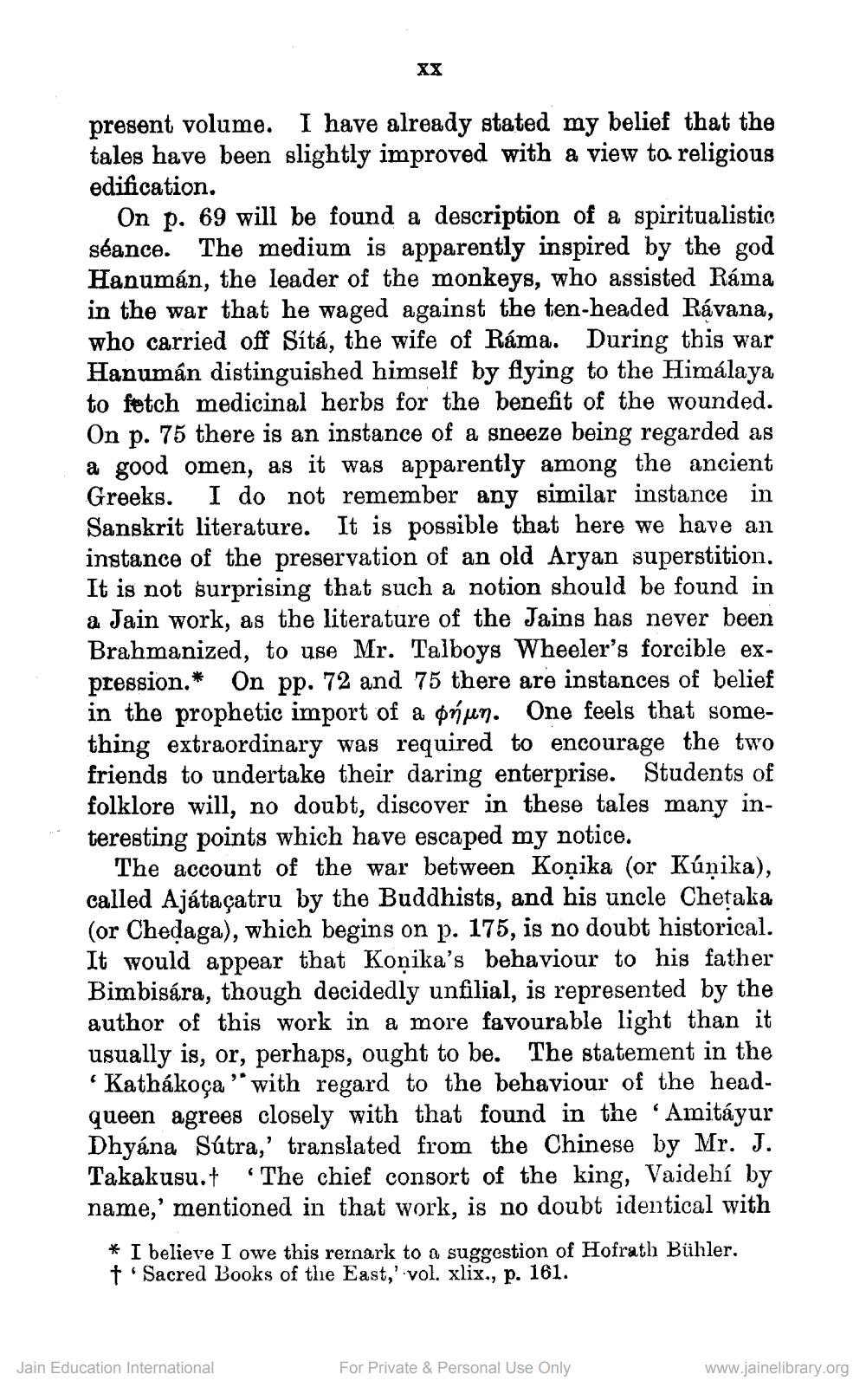________________
present volume. I have already stated my belief that the tales have been slightly improved with a view to religious edification.
On p. 69 will be found a description of a spiritualistic séance. The medium is apparently inspired by the god Hanumán, the leader of the monkeys, who assisted Ráma in the war that he waged against the ten-headed Rávana, who carried off Sítá, the wife of Ráma. During this war Hanuman distinguished himself by flying to the Himalaya to fetch medicinal herbs for the benefit of the wounded. On p. 75 there is an instance of a sneeze being regarded as a good omen, as it was apparently among the ancient Greeks. I do not remember any similar instance in Sanskrit literature. It is possible that here we have an instance of the preservation of an old Aryan superstition. It is not surprising that such a notion should be found in a Jain work, as the literature of the Jains has never been Brahmanized, to use Mr. Talboys Wheeler's forcible expression.* On pp. 72 and 75 there are instances of belief in the prophetic import of a onun. One feels that something extraordinary was required to encourage the two friends to undertake their daring enterprise. Students of folklore will, no doubt, discover in these tales many interesting points which have escaped my notice.
The account of the war between Koạika (or Kúņika), called Ajátaçatru by the Buddhists, and his uncle Chetaka (or Chedaga), which begins on p. 175, is no doubt historical. It would appear that Konika's behaviour to his father Bimbisára, though decidedly unfilial, is represented by the author of this work in a more favourable light than it usually is, or, perhaps, ought to be. The statement in the * Kathákoça' with regard to the behaviour of the headqueen agrees closely with that found in the 'Amitáyur Dhyána Sútra,' translated from the Chinese by Mr. J. Takakusu.t "The chief consort of the king, Vaidehí by name,' mentioned in that work, is no doubt identical with
* I believe I owe this rernark to a suggestion of Hofrath Bühler. † Sacred Books of the East,' vol. xlix., p. 161.
Jain Education International
For Private & Personal Use Only
www.jainelibrary.org




